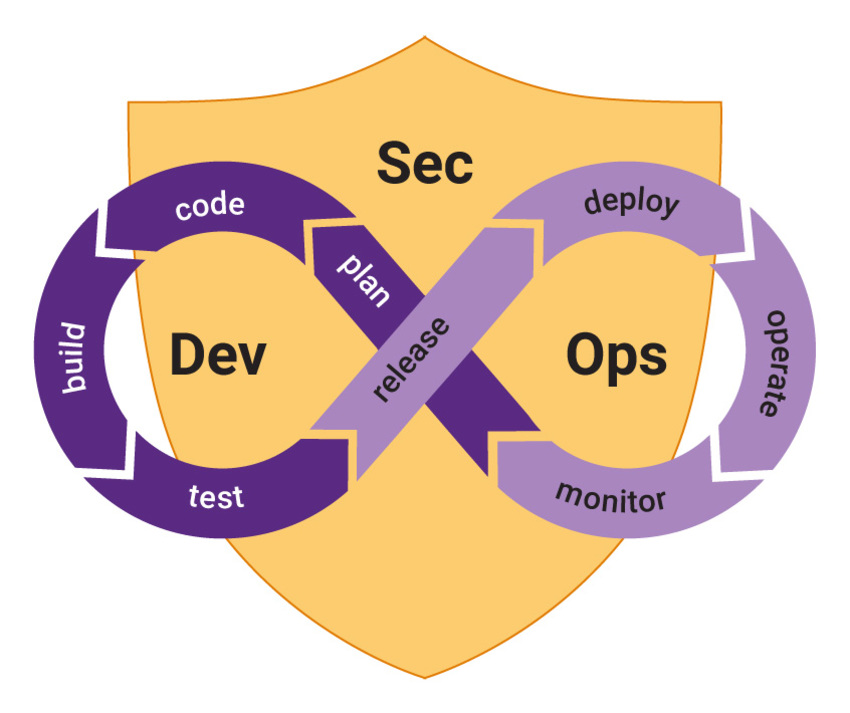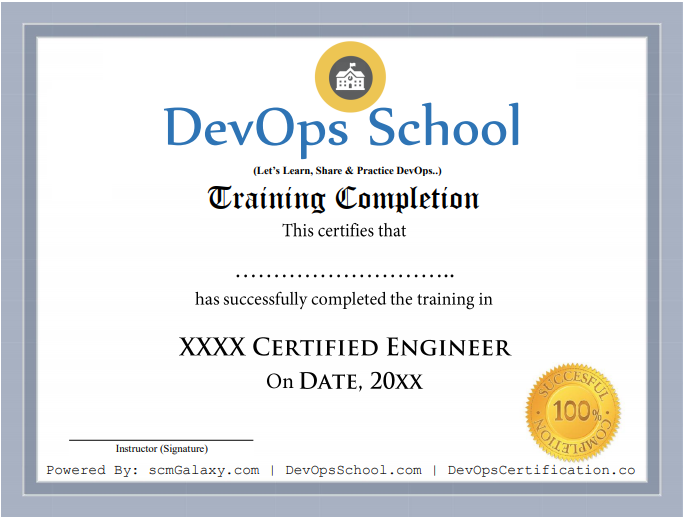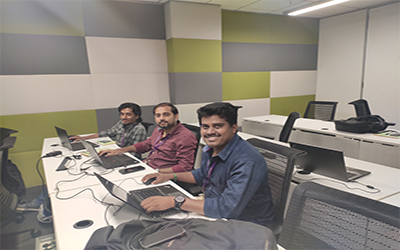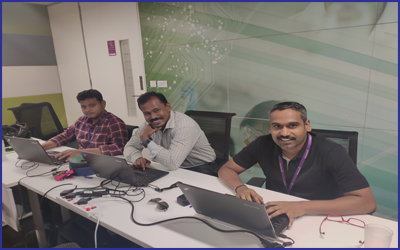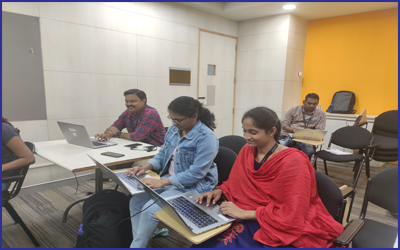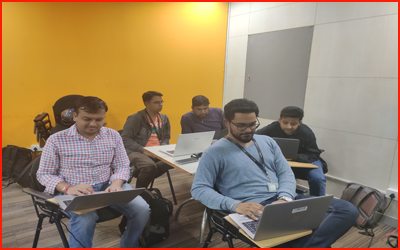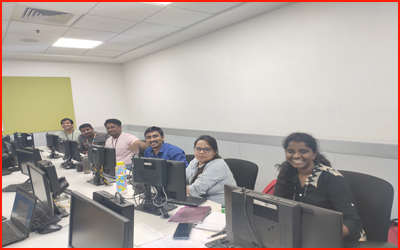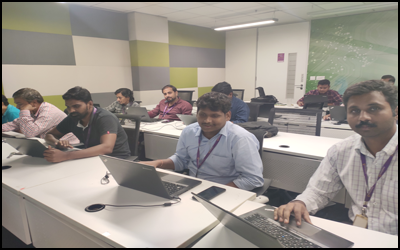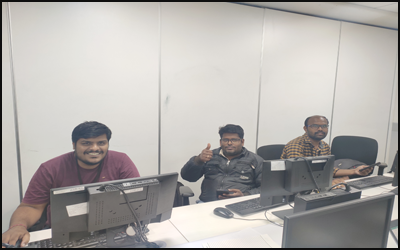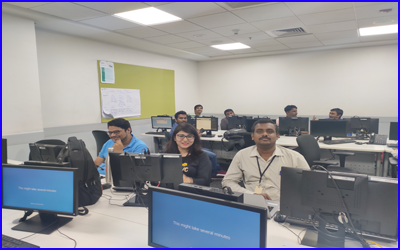8000+
Certified Learners
15+
Years Avg. faculty experience
40+
Happy Clients
4.5/5.0
Average class rating
What is Certified Devsecops Engineer?
A Certified DevSecOps Engineer is an IT professional with the skills to bridge the gap between development, security, and operations teams. They specialize in integrating security practices into all stages of software development, from initial coding to deployment and maintenance. This ensures that applications are built securely and potential vulnerabilities are identified and addressed early on.
Why Certified Devsecops Engineer is important
A Certified DevSecOps Engineer holds significant importance for several reasons:
- Security Integration: Integrating security into the DevOps process ensures that security measures are not treated as an afterthought but are instead woven into the fabric of software development. This proactive approach helps in identifying and addressing security vulnerabilities early in the development lifecycle, reducing the potential for security breaches and data leaks.
- Continuous Security: DevSecOps emphasizes continuous security testing and monitoring throughout the software development lifecycle. Certified DevSecOps Engineers are trained to implement automated security checks, ensuring that security is continuously assessed and addressed as the software evolves.
- Risk Mitigation: By implementing security best practices and tools, Certified DevSecOps Engineers help organizations mitigate security risks associated with software development. This includes identifying and remediating vulnerabilities, adhering to security standards and compliance requirements, and implementing robust security controls.
- Faster Time to Market: Contrary to the misconception that adding security measures slows down the development process, integrating security into DevOps practices can actually streamline the release cycle. Certified DevSecOps Engineers optimize security processes, automate security checks, and facilitate collaboration between development, operations, and security teams, thereby enabling faster time to market for software releases.
- Cost Efficiency: Investing in security measures early in the development lifecycle is more cost-effective than addressing security issues after deployment. Certified DevSecOps Engineers help organizations save costs associated with security breaches, regulatory penalties, and post-release remediation efforts by proactively addressing security concerns throughout the development process.
- Enhanced Reputation and Customer Trust: Security breaches can have severe repercussions on an organization's reputation and erode customer trust. By prioritizing security and demonstrating a commitment to secure software development practices, organizations with Certified DevSecOps Engineers can enhance their reputation and build trust with customers and stakeholders.
- Alignment with Industry Trends: With the increasing frequency and sophistication of cyber threats, cybersecurity has become a top priority for organizations across industries. Having Certified DevSecOps Engineers on board demonstrates an organization's commitment to staying abreast of industry trends and best practices in cybersecurity and software development.
Certified Devsecops Engineer Course Feature
A Certified DevSecOps Engineer course typically covers a comprehensive range of topics and features designed to equip participants with the knowledge, skills, and hands-on experience necessary to integrate security practices into the DevOps pipeline effectively. Some key features of such a course may include:
- Foundational Concepts: Introduction to DevSecOps principles, including the merging of development, operations, and security practices, understanding the importance of shifting security left in the software development lifecycle, and fostering a culture of collaboration and shared responsibility.
- Security Automation Tools: Training on various security automation tools and technologies commonly used in DevSecOps environments, such as static and dynamic code analysis tools, vulnerability scanners, container security tools, configuration management tools, and security testing frameworks.
- Secure Development Practices: Instruction on secure coding practices, secure software design principles, and techniques for identifying and mitigating common security vulnerabilities in software applications, such as injection attacks, cross-site scripting (XSS), broken authentication, and sensitive data exposure.
- Continuous Integration and Continuous Deployment (CI/CD): Understanding the role of CI/CD pipelines in automating software delivery and deployment processes and integrating security checks and testing into CI/CD workflows to ensure that security is maintained throughout the software development lifecycle.
- Infrastructure as Code (IaC): Training on implementing security best practices in Infrastructure as Code (IaC) scripts and templates, leveraging tools like Terraform, Ansible, or CloudFormation to provision and manage infrastructure securely, and applying security controls to cloud-native architectures.
- Container Security: Understanding containerization technologies like Docker and Kubernetes and implementing security measures to protect containerized applications, including image scanning, container runtime security, network segmentation, and access control.
- Compliance and Governance: Guidance on understanding regulatory compliance requirements and industry standards relevant to software development, such as GDPR, HIPAA, PCI DSS, and SOC 2, and integrating compliance checks and controls into the DevOps pipeline.
- Threat Modeling and Risk Assessment: Techniques for conducting threat modeling exercises to identify potential security threats and vulnerabilities in software systems and performing risk assessments to prioritize and mitigate security risks effectively.
- Monitoring and Incident Response: Training on implementing security monitoring and logging solutions to detect and respond to security incidents in real-time, configuring security alerts and notifications, and developing incident response plans and procedures.
- Case Studies and Practical Exercises: Hands-on labs, simulations, and real-world case studies to reinforce learning objectives, allowing participants to apply DevSecOps principles and practices in simulated environments and gain practical experience working with security tools and technologies.
Certified Devsecops Engineer Training objectives
The training objectives for a Certified DevSecOps Engineer course typically focus on equipping participants with the knowledge, skills, and practical experience necessary to integrate security practices seamlessly into the DevOps process. Below are common training objectives for such a course:
- Understanding DevSecOps Principles: Gain a thorough understanding of DevSecOps principles, including the importance of shifting security left in the software development lifecycle, fostering collaboration between development, operations, and security teams, and automating security practices throughout the DevOps pipeline.
- Security Automation Tools and Technologies: Familiarize participants with a range of security automation tools and technologies used in DevSecOps environments, such as static and dynamic code analysis tools, vulnerability scanners, container security solutions, configuration management tools, and security testing frameworks.
- Secure Development Practices: Learn best practices for secure software development, including secure coding principles, secure software design patterns, and techniques for identifying and mitigating common security vulnerabilities in software applications.
- Continuous Integration and Continuous Deployment (CI/CD): Understand the role of CI/CD pipelines in automating software delivery and deployment processes, and learn how to integrate security checks and testing into CI/CD workflows to ensure security is maintained throughout the development lifecycle.
- Infrastructure as Code (IaC): Learn how to implement security best practices in Infrastructure as Code (IaC) scripts and templates, and understand how to leverage tools like Terraform, Ansible, or CloudFormation to provision and manage infrastructure securely.
- Container Security: Gain knowledge of containerization technologies like Docker and Kubernetes, and learn how to implement security measures to protect containerized applications, including image scanning, container runtime security, network segmentation, and access control.
- Compliance and Governance: Understand regulatory compliance requirements and industry standards relevant to software development, and learn how to integrate compliance checks and controls into the DevOps pipeline.
- Threat Modeling and Risk Assessment: Learn techniques for conducting threat modeling exercises to identify potential security threats and vulnerabilities in software systems, and gain skills in performing risk assessments to prioritize and mitigate security risks effectively.
- Monitoring and Incident Response: Gain practical experience in implementing security monitoring and logging solutions to detect and respond to security incidents in real-time, and learn how to develop incident response plans and procedures.
- Case Studies and Practical Exercises: Engage in hands-on labs, simulations, and real-world case studies to reinforce learning objectives, allowing participants to apply DevSecOps principles and practices in simulated environments and gain practical experience working with security tools and technologies.
Certified Devsecops Engineer Target audience
The target audience for Certified DevSecOps Engineer courses encompasses a broad range of IT professionals seeking to bridge the gap between development, security, and operations:
- DevOps Engineers: Upskilling current skillsets to specialize in security and integrate it seamlessly into DevOps practices.
- Security Professionals: Gaining a deeper understanding of DevOps workflows and how to effectively implement security measures within the SDLC.
- IT Managers and Leaders: Overseeing DevOps and security operations teams, and seeking to establish a more secure and efficient software development process.
- Anyone Interested in DevSecOps: Professionals from various IT backgrounds looking to expand their knowledge and pursue a career in DevSecOps.
Certified Devsecops Engineer Training methodology
The training methodology for a Certified DevSecOps Engineer course typically incorporates a blend of instructional approaches to effectively convey DevSecOps principles, practices, and hands-on skills to participants. Some common methodologies used in such training programs include:
- Lectures and Presentations: Traditional classroom-style lectures and presentations are often used to introduce key concepts, principles, and best practices related to DevSecOps. Instructors provide theoretical knowledge and real-world examples to illustrate important concepts.
- Interactive Discussions: Facilitated discussions encourage participants to share their experiences, insights, and challenges related to DevSecOps implementation. This interactive approach fosters peer learning, collaboration, and knowledge sharing among participants.
- Hands-on Labs and Workshops: Hands-on labs and workshops provide participants with practical experience in implementing DevSecOps practices and using security tools and technologies in simulated environments. Participants have the opportunity to apply theoretical knowledge to real-world scenarios and gain proficiency through guided exercises.
- Case Studies and Scenarios: Real-world case studies and scenarios help participants understand how DevSecOps principles and practices are applied in different organizational contexts. Analyzing case studies and solving scenarios allows participants to identify security challenges, devise solutions, and make informed decisions.
- Role-Playing and Simulation: Role-playing exercises and simulations simulate real-world situations, such as security incidents or compliance audits, allowing participants to practice their response skills and decision-making abilities in a safe environment.
- Group Projects and Collaborative Assignments: Group projects and collaborative assignments encourage teamwork and collaboration among participants. Working together on practical projects related to DevSecOps implementation fosters communication, problem-solving, and project management skills.
- Online Resources and Self-paced Learning: Supplemental online resources, such as recorded lectures, reading materials, and interactive tutorials, allow participants to review content at their own pace and reinforce learning outside of scheduled class sessions.
- Assessments and Quizzes: Formative and summative assessments, including quizzes, tests, and assignments, help measure participants' understanding of key concepts and track their progress throughout the training program. Feedback from assessments allows participants to identify areas for improvement and adjust their learning strategies accordingly.
- Certification Exam Preparation: Training programs often include dedicated preparation sessions to help participants prepare for certification exams related to DevSecOps. These sessions cover exam topics, question formats, exam-taking strategies, and practice exams to assess readiness.
- Continuous Learning and Follow-up Support: Continuous learning opportunities, such as webinars, workshops, and online communities, provide ongoing support and resources to participants after completing the training program. Follow-up support helps reinforce learning, address additional questions, and facilitate networking with peers and industry experts.
Certified Devsecops Engineer Training materials
Here's a breakdown of the types of training materials commonly included in a Certified DevSecOps Engineer training program:
- Course Curriculum: An outline detailing the topics covered throughout the training program, including learning objectives and expected outcomes.
- Presentation Slides: Slide decks containing comprehensive information on DevSecOps principles, practices, tools, methodologies, and case studies. These slides serve as a visual aid during instructor-led sessions.
- Textbooks and Guides: Reference materials such as textbooks, guides, and whitepapers covering essential concepts, best practices, and industry standards related to DevSecOps and cybersecurity.
- Hands-on Labs: Practical exercises and lab assignments allowing participants to apply DevSecOps principles and utilize security tools in a simulated environment. These labs provide hands-on experience to reinforce theoretical knowledge.
- Case Studies: Real-world examples and case studies illustrating successful DevSecOps implementations, challenges faced, and lessons learned. Case studies help participants understand how DevSecOps principles can be applied in various organizational contexts.
- Sample Code and Scripts: Examples of secure coding practices, code snippets, and scripts demonstrating vulnerability remediation techniques, security automation, and secure software development.
- Security Tools Documentation: Documentation and user guides for commonly used security tools and technologies in DevSecOps environments, such as vulnerability scanners, static code analysis tools, and security testing frameworks.
- Videos and Webinars: Recorded video sessions and webinars featuring expert insights, demonstrations, and discussions on DevSecOps topics, best practices, and emerging trends.
- Practice Exams and Quizzes: Mock exams, quizzes, and practice questions to assess participants' understanding of DevSecOps concepts and prepare them for certification exams.
- Online Resources: Links to relevant articles, blog posts, research papers, and online courses providing additional insights and perspectives on DevSecOps, cybersecurity, and related topics.
